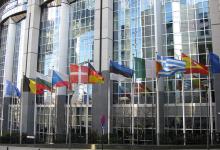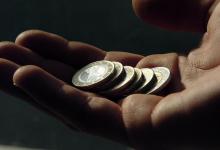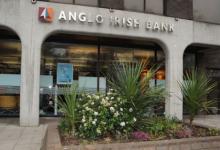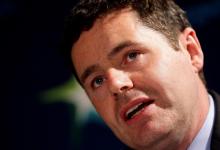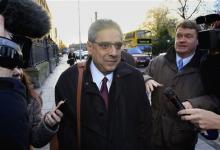Politics
Week 7: 'The day of Big Brother grows ever closer'
On Monday 18 April I met with a number of people who have formed a working group to pursue areas of common interest in connection with thermal energy. Peter Scallan of Celtic Linen, Eimear Mannion of Wexford Creamery and Ken Cahill of Irish Pride Bakeries came to Dublin to explain their plight in relation to energy costs. These three companies employ over 1500 people between them in Wexford and they are being forced to compete on an unlevel playing field as the county has no access to natural gas.
Telling EU to get lost is not the answer
We are prisoners of Europe's only superpower
The European Union project has involved a derogation, not just of sovereignty, but of democracy in a way most of us did not anticipate, and far more serious than even Eurosceptics feared, writes Vincent Browne.
It has to do with the European Central Bank.
This has emerged as the most powerful institution on the European Union plateau. It is entirely unaccountable to anybody or any institution.
We, the Irish people, voted for this in the referendum on the Treaty of Maastricht in 1992 without any appreciation of the consequences of what was entailed.
Week 6: When are the interests of ordinary people going to come first?
I began week 6 by highlighting to the Taoiseach the difficulty faced by mortgage holders, especially given the new interest rate increases, and more are likely to follow. I enquired if the government might consider mortgage debt relief for those who bought property between 2004 and 2008, rather than just kicking the can down the road with temporary relief. On Wednesday morning (13 April), I challenged Tánaiste Eamon Gilmore about the lack of real concern on the part of Angela Merkel – the person calling the shots – for those countries on the periphery of Europe like Ireland.
Getting to know Gilmore
He may be the second-most powerful politician in Ireland but it’s surprising how little most of us still know about Eamon Gilmore. In a surprising new book Leading Lights, the Labour leader reveals the people who have inspired him, setting out his vision for a better Ireland in the process. By Ed O’Hare.
Calling for a referendum on the bailout
Week 5 was dominated by the ‘bank reorganisation’ and the EU-IMF bailout. I disagreed very strongly with the manner in which the previous government dealt with this, and I am certainly disappointed by the way the new Coalition has continued on the very same path, despite promises to the contrary. Here’s a section of my Dáil speech:
Sean Quinn's Anglo gamble made us all losers
Anglo's attempts to keep its share price afloat in the wake of Seán Quinn's disastrous speculation were at best highly dubious, writes Vincent Browne
Seán Quinn said on Monday: "Our mistake was to place an overreliance on the Irish banking system and the many predictions for continued sustained growth in the Irish economy from some of the country's leading financial services experts."
He seems to be in denial.
Debating default: The 31st Dáil should not be the default Dáil
Growing numbers of commentators and politicians are advocating strategic default as the only available way out of the current crisis. Newly elected Fine Gael TD Paschal Donohoe disagrees.
In a new paper, published here, he argues that a unilateral sovereign default would prolong the fiscal crisis, and that those advocating this strategy have not adequately justified their position.
Noonan ticks his boxes as Chopra stalks the streets
At 11.30am last Friday, Michael Noonan and Brendan Howlin were telling journalists how Ireland had passed the first quarterly EU/IMF examination with second-class honours.
They were very pleased. Noonan was probably thinking of getting an extra 10 per cent by answering a few questions in Irish.
Noonan seemed knowledgeable about everything - until he volunteered that he knew nothing at all about property prices, but he said he talked to people who did know about property prices. He did not say who these people were or how they knew about property prices.

